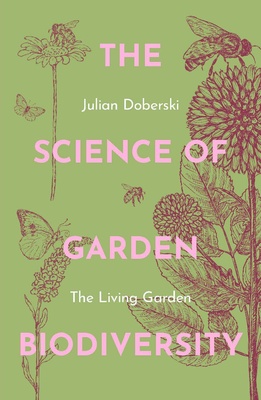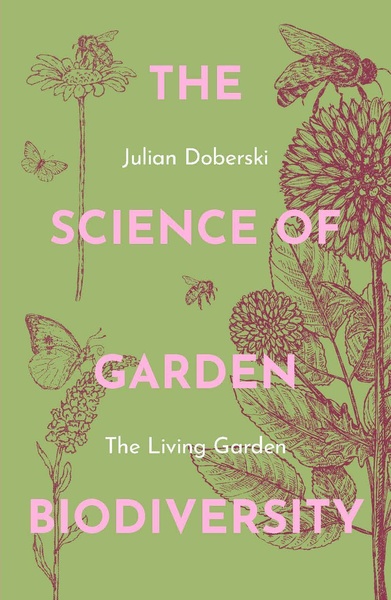The Science of Garden Biodiversity
The Living Garden
Applying the science of ecology to wildlife promotion and conservation in gardens.
- AvailablePaperback9781914902093144 pagesList Price: GBP 9.99 Buy from bookshop.org (UK)
You step out of the back door into the garden. There may be a few birds flitting around, perhaps butterflies or bumblebees on the wing, but often the garden can seem very still. However, if you look beyond the superficial inactivity there is an ecological web of wildlife to explore, to understand and then to encourage more biodiversity.
The Science of Garden Biodiversity: The Living Garden shows how data and science can help to dispel myths, such as that wildlife gardens are great for wildlife (and other gardens aren’t), that a garden fit for wildlife must be ‘wild’ and that you must grow native plants. It also provides an understanding of how diverse life can be in gardens and how gardens work. And along the way there are scientific ‘signposts’ to better wildlife gardening. Julian Doberski explains the role of 'small things' - microorganisms and invertebrates - that are fundamental to the ecological functioning of gardens.
Learning more about the ecology of a garden helps us understand what makes a garden a refuge for wildlife and how following the science may lead to a more thoughtful and constructive approach to gardening, garden design and garden planting.
Julian Doberski has degrees in Zoology (BSc Southampton), Forestry (MSc Oxford) and a PhD in biological control of insects using fungi (Cambridge). He has thirty years of teaching experience at Anglia Ruskin University in Cambridge (and its predecessor institutions) where he was a Principal Lecturer in Ecology. He has jointly published a resource pack for A level ecology students and a range of scientific research and science in education papers. His first book, The Science of Compost, was published by Pimpernel Press Ltd in 2022. He lives in Cambridgeshire.
"Brings an informed, academic element that will satisfy serious growers and nature lovers."
"Meticulously referenced with the latest research, this book will appeal to all gardeners who want to please the local wildlife and better know the scientific basis of what they're doing."
"Community ecology is so important in the garden habitat but the information in the academic literature almost never escapes into the gardening media. Julian Doberski has undertaken several small but important meta-analyses that are very revealing. It's a terrific work, and deserves every accolade it will undoubtedly receive."
"Strongly recommended as a very readable and up to date account at an affordable price."
"A must-read for forward thinking gardeners."
"Encourages a more thoughtful, holistic approach to gardening and garden design."


